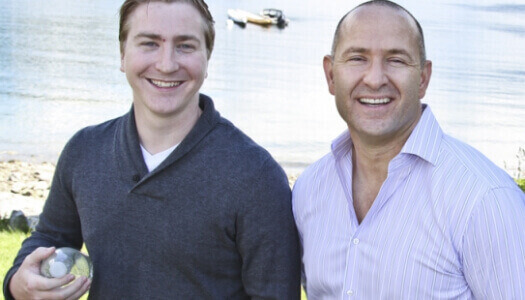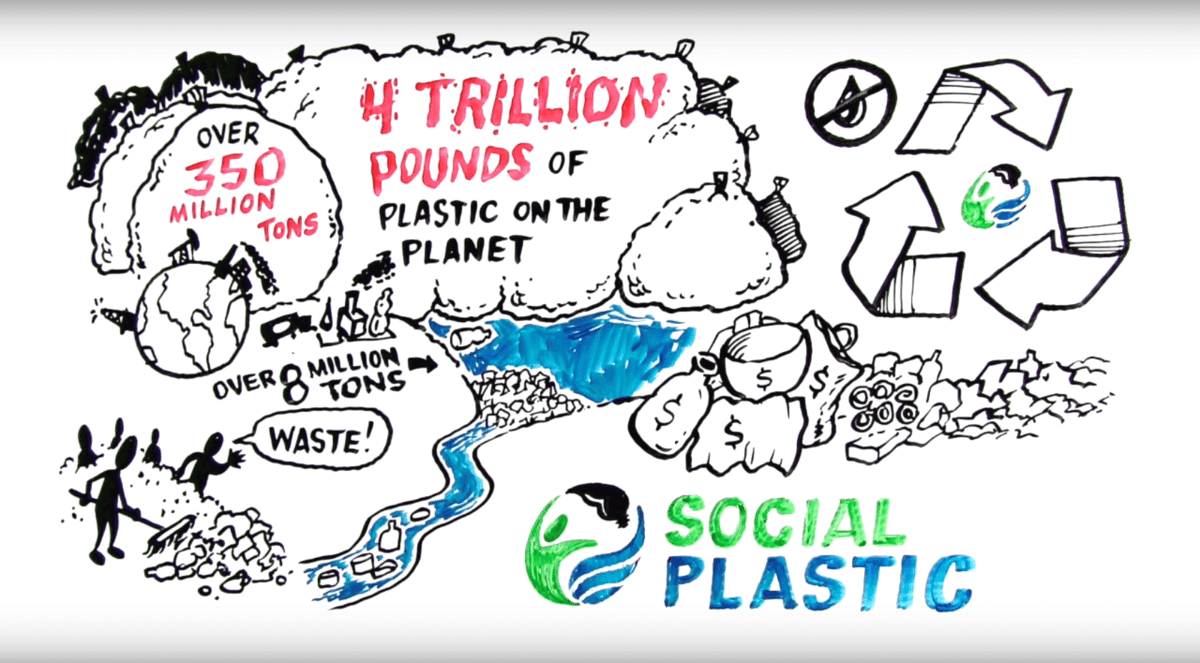Is changing the way we see garbage the best way to reduce global poverty and stop plastic entering the ocean, all at the same time?
The Sustainia Community Award, which is given to a solution, technology or initiative with significant potential to build a more sustainable future, was awarded to The Plastic Bank at the COP21 Climate Conference in Paris.
The Vancouver-based social enterprise encourages people living in poverty to collect and exchange waste plastic for such things as money, solar-powered phone charging, Wi-Fi, sustainable cooking fuels, water purification, fortified rice, toys, and soap.

Their mission is a great one, they state on their website: “We make plastic waste a currency to help reduce global poverty while stopping plastic from entering the ocean.”
The system used by the founders David Katz (right below) and Shaun Frankson (left below) is simple. Katz said: “If every bottle you came across in the streets of Vancouver was worth $5, how many would you see in the garbage? None.”
The Plastic Bank is now two years old, and they have created thirty-two “Social Plastic Recycling Markets” in Haiti as well as completing pilot programs in Peru.
Their mission doesn’t end there as they even intend to enable communities to 3D print useful products that they can then sell. To do this, they have created a heavy-use plastic extruder that makes 3D printing filament from waste plastic and the plans have been made publicly available too!
The organization doesn’t tread on any toes either, but instead partner with existing local recycling facilities and organizations, for example, in Haiti, they found an existing business in bankruptcy and overlaid their model.
The Plastic Bank resells plastic to manufacturers as Social Plastic branded pellets at double the normal cost of recycled material which means it can afford to pay above global pricing for returned plastics.
If you’re wondering how they manage to do this, Katz said that manufacturers: “get the entire social story with it and that’s how we can pay more.”
Thanks to this, the company already have relationships with Unilever, Procter & Gamble, and Seventh Generation. In 2014, LUSH became the first buyers of Social Plastic when they agreed to purchase all of the recycled HPDE from the shore line clean up the pilot project.
License: The text of "The Plastic Bank Wins Sustainability Award in Paris" by All3DP is licensed under a Creative Commons Attribution 4.0 International License.

